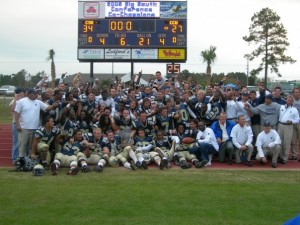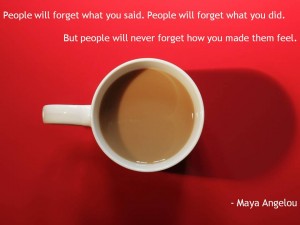Many organizations do well when they are small, tight-nit groups. When this is the case, the owner typically has a small group of people that are trusted and will go above and beyond their duties that they are monetarily compensated for. In return for the additional work, time, and overall effort that is put in by the employees, the employer rewards them with anything from cash bonuses to fancy titles. But the most important reward that the owner can give their employees is full disclosure.
This may seem trite, but the power of full transparency within organizations can often times keep one together where others would fall apart at the seams. Let’s assume that Company A and Company B come across the same melt-down and drastic measures need to be taken. The companies have both made a huge mistake and over-ordered product, leaving them cash-poor. Although the situation is not good by a long shot, it’s not doomed either. The company needs to save money and elongate the time it can stay open in order to fix the situation.
- Company A: Only informs employees of what they need to know and nothing more.
- Company B: Open and honest with it’s people about its intentions, crisis, financials, and mile-stones.
The Owner of Company A emails his team and says that there need to be some changes made and he’s cutting wages. He cites a lack of productivity and attempts to inspire his team through a temporary setback to see who responds the best to earn their keep. He alludes to the fact that they should be lucky to have jobs in a down economy and that someone might be fired if they do not respond as he wants. The workers have no choice but to accept and continue working, polishing up their resumes in the evening hours.
The Owner of Company B immediately brings her team together with a face to face ‘town hall’ style meeting to explain the situation. She tells her team that there has been some major setbacks and that there is a light at the end of the tunnel, but that they’ll not be able to reach it unless they come together. She explains that if they continue to pay everyone their current salaries the company would close in 2 months, but if everyone took an 8% pay cut that was temporary, the company could last 2 additional months and give them time to pull out of the hole. The workers are not thrilled about the pay-cut, however they are grateful to have jobs and not be let go.
 As we can imagine, Company B responds much better than Company A. They band together to get themselves out of the hole, staying additional hours to finish projects and setting their goal to keep the company open, working each day like their backs are against the wall. Morale is at an all-time high and this crisis has given the team a newly found sense of purpose.
As we can imagine, Company B responds much better than Company A. They band together to get themselves out of the hole, staying additional hours to finish projects and setting their goal to keep the company open, working each day like their backs are against the wall. Morale is at an all-time high and this crisis has given the team a newly found sense of purpose.
While on the other hand, Company A is demoralized and does not understand the situation they have been thrust into. Company morale sinks and people begin to polish up their resumes, assuming the worst is coming for them without hope. Tempers flare as rumors of closing set in and the organization is closed within 45 days of the decree for pay-cuts.
We can hold the values of Company A Owner, or we can follow the path of Company B Owner in our daily work lives. We do not have to be in the position of power to operate with full transparency, but when we are we set the precedent for the rest of the company to follow suit. People will find out the truth whether we tell them or not, so we might as well save the headache for everyone and put all the cards on the table so that we can make the best decisions for all parties.






